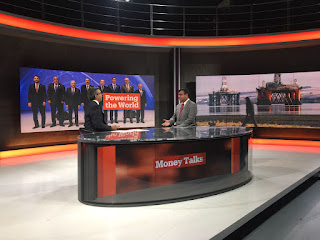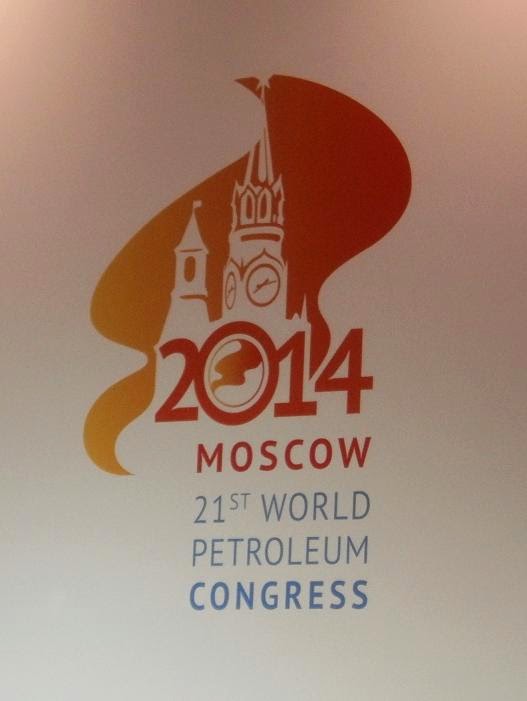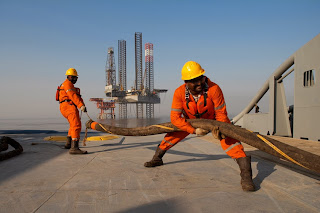
In a fortnight during which the
Bank of England hired a man whose signature appears on Canadian banknotes as its new governor, the oil & gas world reiterated its own cross-border nature, when an American firm sold a Kazakh asset to an Indian company. That firm being ConocoPhillips, the asset being its 8.4% stake in Kazakh oil field
Kashagan and the Indian buyer being national oil company (NOC) ONGC Videsh – all signed, sealed and delivered in a deal worth around US$5.5 billion.
Even with an after-tax impairment of US$400 million, the deal represents a tidy packet for ConocoPhillips as it attempts to cut its debt. Having divested its stake in Russia’s Lukoil, the American oil major has already beaten its asset sale programme target of US$20 billion. So when the final announcement came, it was not much of a surprise as Kazakhstan government officials had revealed much earlier that a move was on the cards.
Still it is sobering to see ConocoPhillips divest from Kashagan – the world's biggest oilfield discovery by volume since 1968. It may hold an estimated 30 billion barrels of oil. Phase I of the development, set to begin next year, could yield around 8 billion barrels, a share of which ONGC is keenly eyeing.
India imports over 75% of the crude oil it craves and is in fact the world's fourth-biggest oil importer by volume. Given this dynamic, capital expenditure on asset with a slower turnaround may not be an immediate concern for an Indian NOC, but certainly is for investors in the likes of ConocoPhillips and its European peers.
On the back of a series of meetings between investors and its EMEA natural resources & commodities team in London, Fitch Ratings recently revealed that elongated upstream investment lead times and a (still) weak refining environment in Western Europe remain a cash flow concern for investors.
They seemed most concerned about the lead time between higher upstream capex and eventual cash flow generation and were worried about downward rating pressure if financial metrics become strained for an extended period. It is prudent to mention that Fitch Ratings views EMEA oil & gas companies' capex programmes as measured and rational despite a sector wide revised focus on upstream investment.
For example, the two big beasts – BP and Royal Dutch Shell – are rated 'A'/Positive and 'AA'/Stable respectively; both have increased capex by more than one-third for the first 9 months of 2012 compared to the same period last year. Elsewhere in their chats, unsurprisingly Fitch found that refining overcapacity and weak utilisation rates remain a concern for investors in the European refining sector. Geopolitical risk is also on investors' minds as they look to 2013.
While geopolitical events may drive oil prices up, which positively impact cash flow, interruptions to shipping volumes may more than offset gains from these price increases – negatively impacting both operating cash flow and companies' competitive market positions. Away from capex concerns, Fitch also said that shale gas production in Poland could improve the country's security of gas supplies but is unlikely to lead to large declines in gas prices before 2020.
In a report published on November 26, Arkadiusz Wicik, Fitch’s Warsaw-based director and one of the most pragmatic commentators the Oilholic has encountered, noted that shale gas production in Poland, which has one of the highest shale development potentials in Europe, would lower the country's dependence on gas imports. Most of Poland's imports currently come from Russia.
However, Wicik candidly noted that even substantial shale gas production by 2020, is unlikely to result in large declines in domestic gas prices.
"In the most likely scenario, shale gas production, which may start around 2015, will not lead to a gas oversupply in the first few years of production, especially as domestic gas demand may increase by 2020 as several gas-fired power plants are planned to be built. If there is a surplus of gas because shale gas production reaches a significant level by 2020, this surplus is likely to be exported," he added.
In actual fact, if the planned liberalisation of the Polish gas market takes place in the next few years, European spot gas prices may have a larger impact on gas prices in Poland than the potential shale gas output.
From a credit perspective, Fitch views shale gas exploration as high risk and capital intensive. Meanwhile, the UK government was forced on the defensive when a report in
The Independent newspaper claimed that it was opening up 60% of the country’s cherished countryside for fracking.
Responding to the report, a government spokesperson said, "There is a big difference between the amount of shale gas that might exist and what can be technically and commercially extracted. It is too early to assess the potential for shale gas but the suggestion more than 60% of the UK countryside could be exploited is nonsense."
"We have commissioned the British Geological Survey to do an assessment of the UK's shale gas resources, which will report its findings next year," he added.
Barely had The Independent revealed this ‘hot’ news, around 300 people held an 'anti-fracking' protest in London. Wow, that many ‘eh!? In defence of the anti-frackers, it is rather cold these days in London to be hollering outside Parliament.
Moving on to the price of the crude stuff, Moody’s reckons a constrained US market will result in a US$15 per barrel difference in 2013 between the two benchmarks – Brent and WTI – with an expected premium in favour of the former. Its recently revised price assumptions state that Brent crude will sell for an average US$$100 per barrel in 2013, US$95 in 2014 and US$90 in the medium term, beyond 2014. While the price assumption for Brent beyond 2014 is unchanged, the agency has revised both the 2013 and 2014 assumptions.
For WTI, Moody’s has left its previous assumptions unchanged at US$85 in 2013, 2014 and thereafter. Such a sentiment ties-in to the Oilholic’s anecdotal evidence from the US and what many in City concur with. So Moody’s is not alone in saying that Brent’s premium to WTI is not going anywhere, anytime soon. Even if the Chinese economy tanks, it’ll still persist in some form as both benchmarks will plummet relative to market conditions but won’t narrow up their difference below double figures.
Finally, on the noteworthy corporate news front, aside from ConocoPhillips’ move, BP was in the headlines again for a number of reasons.
Reuters’ resident Oilholic
Tom Bergin reported in an
exclusive that BP is planning a reorganisation of its exploration and production (E&P) operations. Citing sources close to the move, Bergin wrote that Lamar McKay, currently head of BP's US operations, will become head of a new E&P unit; a reinstatement of a role that was abolished in 2010 in the wake of the oil spill.
Current boss Bob Dudley split BP's old E&P division into three units on his elevation to CEO to replace
Tony Hayward, whose gaffes in during the Gulf of Mexico oil spill led to his stepping down. BP declined to comment on Bergin’s story but few days later provided an unrelated newsworthy snippet.
The oil giant said it had held preliminary talks with the Russian government and stakeholders in the Nordstream pipeline about extending the line to deliver gas to the UK. BP said any potential extension to the pipeline was unlikely to be agreed before mid-2013.
The pipeline’s Phase I, which is onstream, runs under the Baltic Sea bringing Russian gas into Germany. A source described the move as “serious” and aimed at diversifying the UK’s pool of gas supplying nations which currently include Norway and Qatar as North Sea production continues to wane. As if that was not enough news from BP for one fortnight, the US government decided to "temporarily" ban the company from bagging any new US government contracts.
The country's Environmental Protection Agency (EPA) said on November 28 that the move was standard practice when a company reaches an agreement to
plead guilty to criminal charges as BP did earlier in the month. New US E&P licences are made available regularly, so BP may miss out on some opportunities while the ban is in place but any impact is likely to be relatively ephemeral at worst. No panic needed!
On a closing note, in a move widely cheered by supply side industry observers, Shell lifted its force majeure on Nigeria's benchmark Bonny Light crude oil exports on November 21 easing supply problems for Africa’s leading oil producer. The force majeure, implying a failure to meet contractual obligations due to events outside of corporate control, on Bonny Light exports came into place on October 19 following a fire on a ship being used to steal oil. It forced the company to shut down its Bomu-Bonny pipeline and defer 150,000 barrels per day of production.
However, Shell said that force majeure on Nigerian Forcados crude exports remains in place. Forcados production was also stopped owing to damage caused by suspected thieves tapping into the Trans Forcados Pipeline and the Brass Creek trunkline. As they say in Nigeria - it’s all ok until the next attempted theft goes awry. That’s all for the moment folks! Keep reading, keep it 'crude'!
© Gaurav Sharma 2012. Photo: Oil Rig, USA © Shell
















